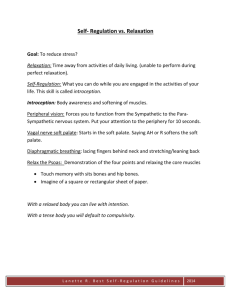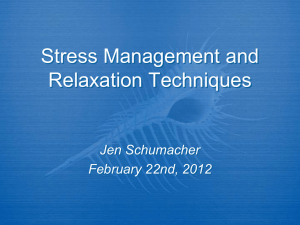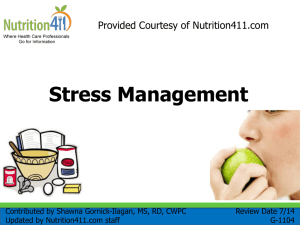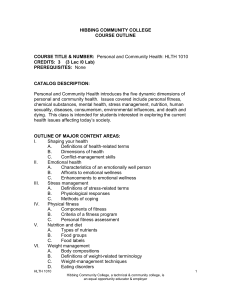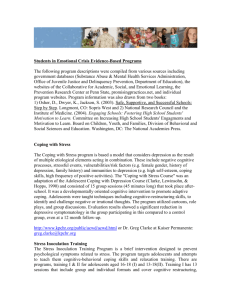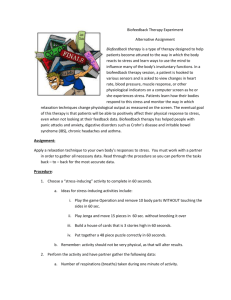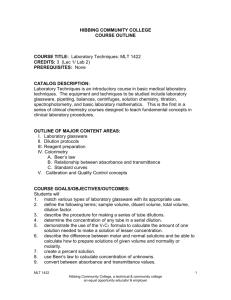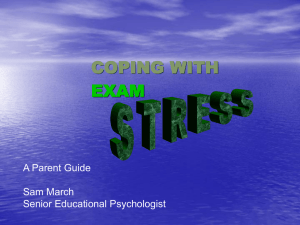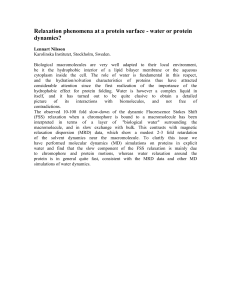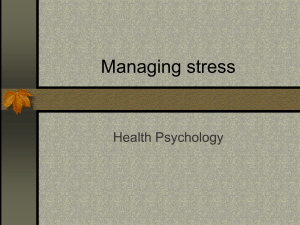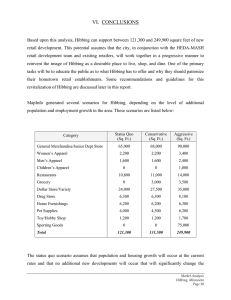HLTH 1030 - Hibbing Community College
advertisement
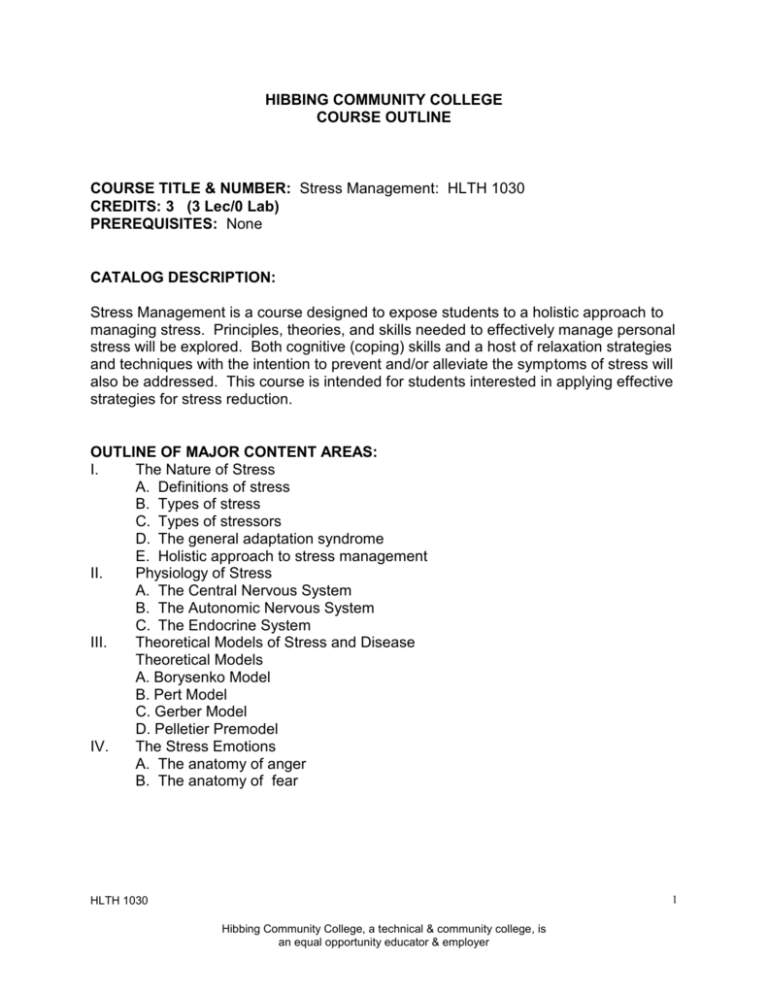
HIBBING COMMUNITY COLLEGE COURSE OUTLINE COURSE TITLE & NUMBER: Stress Management: HLTH 1030 CREDITS: 3 (3 Lec/0 Lab) PREREQUISITES: None CATALOG DESCRIPTION: Stress Management is a course designed to expose students to a holistic approach to managing stress. Principles, theories, and skills needed to effectively manage personal stress will be explored. Both cognitive (coping) skills and a host of relaxation strategies and techniques with the intention to prevent and/or alleviate the symptoms of stress will also be addressed. This course is intended for students interested in applying effective strategies for stress reduction. OUTLINE OF MAJOR CONTENT AREAS: I. The Nature of Stress A. Definitions of stress B. Types of stress C. Types of stressors D. The general adaptation syndrome E. Holistic approach to stress management II. Physiology of Stress A. The Central Nervous System B. The Autonomic Nervous System C. The Endocrine System III. Theoretical Models of Stress and Disease Theoretical Models A. Borysenko Model B. Pert Model C. Gerber Model D. Pelletier Premodel IV. The Stress Emotions A. The anatomy of anger B. The anatomy of fear 1 HLTH 1030 Hibbing Community College, a technical & community college, is an equal opportunity educator & employer V. VI. VII. Stress -Prone and Stress -Resistant Personalities A. Type A through Type D personalities B. Hardy personality C. Helpless-hopeless personality D. Survivor personality Coping Strategies A. Cognitive restructuring: reframing B. Behavior modification C. Journal writing D. Expressive art therapy E. Humor therapy F. Creative problem solving G. Communication skills H. Resource management: managing time and money Relaxation Techniques A. Diaphragmatic breathing B. Meditation C. Yoga D. Mental imagery and visualization E. Music therapy F. Massage therapy G. Progressive muscular relaxation H. Autogenic training I. Clinical biofeedback J. Nutrition K. Physical exercise COURSE GOALS/OBJECTIVES/OUTCOMES: Students will: 1. define stress and its physiologic and psychological affects on the body, mind, and spirit. 2. name the four major theoretical models pertaining to stress and disease. 3. summarize the interdependence of anger and fear on the stress-prone and stress-resistant personalities. 4. explain the importance of cognitive restructuring and behavior modification. 5. define and explain the various coping strategies such as journal writing, art therapy, humor, creative problem solving, communication skills, and resource management as coping strategies. 6. demonstrate relaxation techniques such as diaphragmatic breathing, meditation, yoga, imagery/visualization, music, massage, tai chi, muscular relaxation, autogenic training, clinical biofeedback, nutrition, and physical exercise. 7. create a personalized stress management program. 2 HLTH 1030 Hibbing Community College, a technical & community college, is an equal opportunity educator & employer MNTC GOALS AND COMPETENCIES MET: N/A HCC COMPETENCIES MET: Working Productively and Cooperatively Communicating Clearly and Effectively Thinking Creatively and Critically STUDENT CONTRIBUTIONS: Attend class, participate in classroom discussions and activities, adhere to the civility guidelines, meet the established due dates of the coursework, and communicate with the instructor with regard to extenuating circumstances. STUDENT ASSESSMENT SHALL TAKE PLACE USING INSTRUMENTS SELECTED/DEVELOPED BY THE COURSE INSTRUCTOR. SPECIAL INFORMATION: (SPECIAL FEES, DIRECTIVES ON HAZARDOUS MATERIALS, ETC.): The class will involve activities requiring moderate physical activity through participation in various relaxation techniques. Students will be expected to dress appropriately for activity. AASC APPROVAL DATE: November 17, 2010 REVIEW DATE: November 2015 HLTH1030:so 111710 3 HLTH 1030 Hibbing Community College, a technical & community college, is an equal opportunity educator & employer
